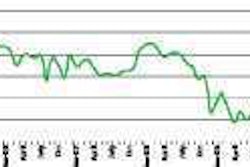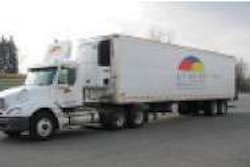Seven deadly trends?

As we head into the holiday season, the editorial staff here at CCJ is busy pulling together the magazine’s centennial anniversary issue, which will appear in March. Going through the stacks of archival material, I was struck by the fact that trucking has been an industry in a constant state of change since the very first motorized wagon rattled down a cobblestone street with a load of goods tied down on its flatbed.
Most of these changes were subtle and, more often than not, logical. It’s easy to see how enclosed cabs, driveshafts and diesel engines could make trucks more productive and profitable for fleets. In the 1930s, there was a noticeable shift when the federal government began to exert control over the trucking industry for the first time. The pace of change quickened as federal safety mandates became a factor for fleets. But generally speaking, progress remained slow and steady – especially by today’s standards – and it wasn’t difficult for OEMs or fleets to stay abreast.
Progress in today’s business and technological climate can be breathtaking, I thought to myself in October while visiting Thermo King’s North American headquarters in Minneapolis. Thermo King made its mark in trucking history in 1938 when it developed and marketed the world’s first refrigerated trailer, an inspired innovation that has paid handsome dividends for the company. Today, Thermo King, a division of Ingersoll-Rand, is a company that finds itself on the front lines preparing for the onslaught of changes that will affect this industry over the next decade.
Thermo King’s R&D helps fleets with compliance and profitability.
According to Don Lenz, global product manager for the company, seven worldwide trends that will affect the trucking industry currently are driving Thermo King’s R&D cycle: Finding nondiesel power solutions; an overall trend toward increased electrification on trucks and trailers; ever-present emissions regulations; increasing vehicle efficiency and optimization; outsourcing; the growing green movement; and enhancing food safety.
And that’s just the tip of the iceberg. Lenz says these trends each have sub-trends that will make compliance even more complicated for fleets going forward. Take noise, for example. “Looking forward at global regulations, we can see that noise levels are going to become increasingly important in the next few years,” Lenz notes. “In the Netherlands now, trucking loading and unloading must be done at noise levels lower than 60 decibels. These are very strict standards, and it’s possible similar laws will begin appearing in the U.S. in the future.”
But far from shying away from such challenges, Lenz says Thermo King is using technology to help fleets not only remain compliant, but also be more profitable and serve their customers better. Using telematics for real-time monitoring of frozen or refrigerated food shipments is one example. “This is a very complex issue,” he notes. “We’re now seeing companies like McDonald’s put out their own very stringent food management requirements on top of increasingly strict FDA guidelines.” By using telematics, Thermo King now can provide carriers with real-time temperature tracking, van access and entry data, as well as data logs that will detail a food item’s entire history from the time it was processed until purchased and consumed. At the same time, telematics systems tied to GPS can allow for remote-controlled reefer starts and tighter control of cool-down times for substantial fuel savings.
The point is this: It’s not just the vehicle and trailer manufacturers that are bearing the brunt of the many changes coming down the pike. Even component suppliers must invest heavily and rise up to meet the many challenges on the horizon. And their contributions to the never-ending technology race will pay dividends for fleets in the long run. n
JACK ROBERTS is Executive Editor, Trucking of Commercial Carrier Journal. E-mail [email protected] or call (205) 248-1358.









